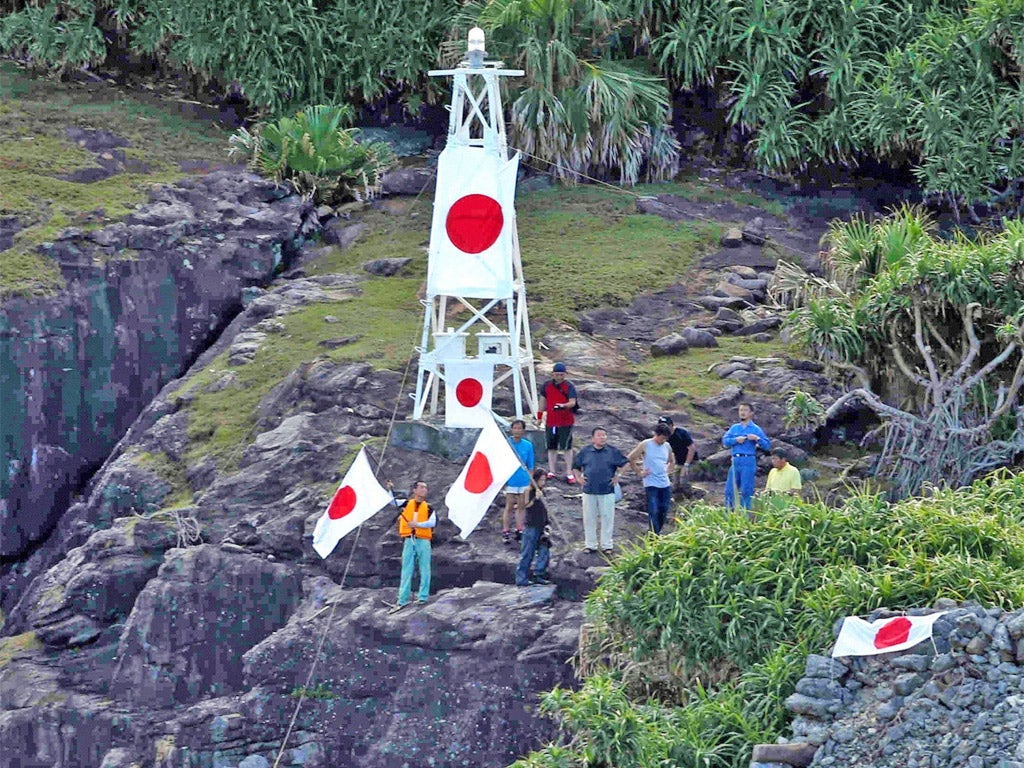Tension grows in China as Japan purchases disputed oil islands

Japan sensationally raised the stakes in its long-running territorial dispute with China yesterday, reportedly agreeing to buy three of the disputed Senkaku islands south-west of Okinawa from their private Japanese owners for 2.05bn yen (£16.4m).
The islands, which the Chinese call Diaoyu, form part of a series of barren and largely uninhabited clumps of rock south of China which have assumed an importance out of all proportion to their modest size and unimpressive appearance as China and the US jockey for power and influence in the region.
Arguments over the claims and counter-claims overshadowed a visit to China by the US Secretary of State, Hillary Clinton, which ended yesterday with both sides admitting their differences with unusual frankness.
Jorge Luis Borges famously described the Falklands War as "two bald men fighting over a comb". The South China standoff may look like more of the same: none of these arid atolls have anything to offer tourists or hoteliers. But the stakes are far larger than they appear – connected in some cases to reportedly vast quantities of untapped oil and gas, and in all to strategic control of the surrounding waterways. And everywhere, these disputes are feeding into a dangerously febrile nationalistic mood throughout the region.
Senkaku is a case in point. The islands reverted to Japan in 1972 in the treaty signed with the US which also returned Okinawa to Japan. Gas reserves had been identified nearby in 1968, but it was not until a visit to Japan by Deng Xiaoping in 1978 that China staked a claim to the archipelago, which is much closer both to Taiwan and the south China coast than to the Japanese mainland.
The issue has steadily risen in importance since then, with firebrands on both sides urging their governments to stand up to claimed humiliations. It came to a head in August when Chinese demonstrators landed on one of the islands, Uotsurijima. They were arrested by Japanese authorities stationed on the island and deported. A few days later Japanese nationalists hoisted the national flag, sparking protests in China.
Yesterday's agreement by the Japanese to purchase three of the islands, including Uotsurijima, provoked an immediate and furious Chinese reaction. A Foreign Ministry spokesman said: "In disregard of China's solemn representations and firm opposition, Japan single-mindedly pushes forward the island purchase process, which severely harmed China's territorial sovereignty and hurt the feelings of the Chinese people. We cannot help but ask where is Japan trying to lead China-Japan relations?"
The spat left Ms Clinton high and dry at the end of a bruising visit to Beijing which was dominated by similar tensions over other little spots in the ocean.
Subscribe to Independent Premium to bookmark this article
Want to bookmark your favourite articles and stories to read or reference later? Start your Independent Premium subscription today.

Join our commenting forum
Join thought-provoking conversations, follow other Independent readers and see their replies